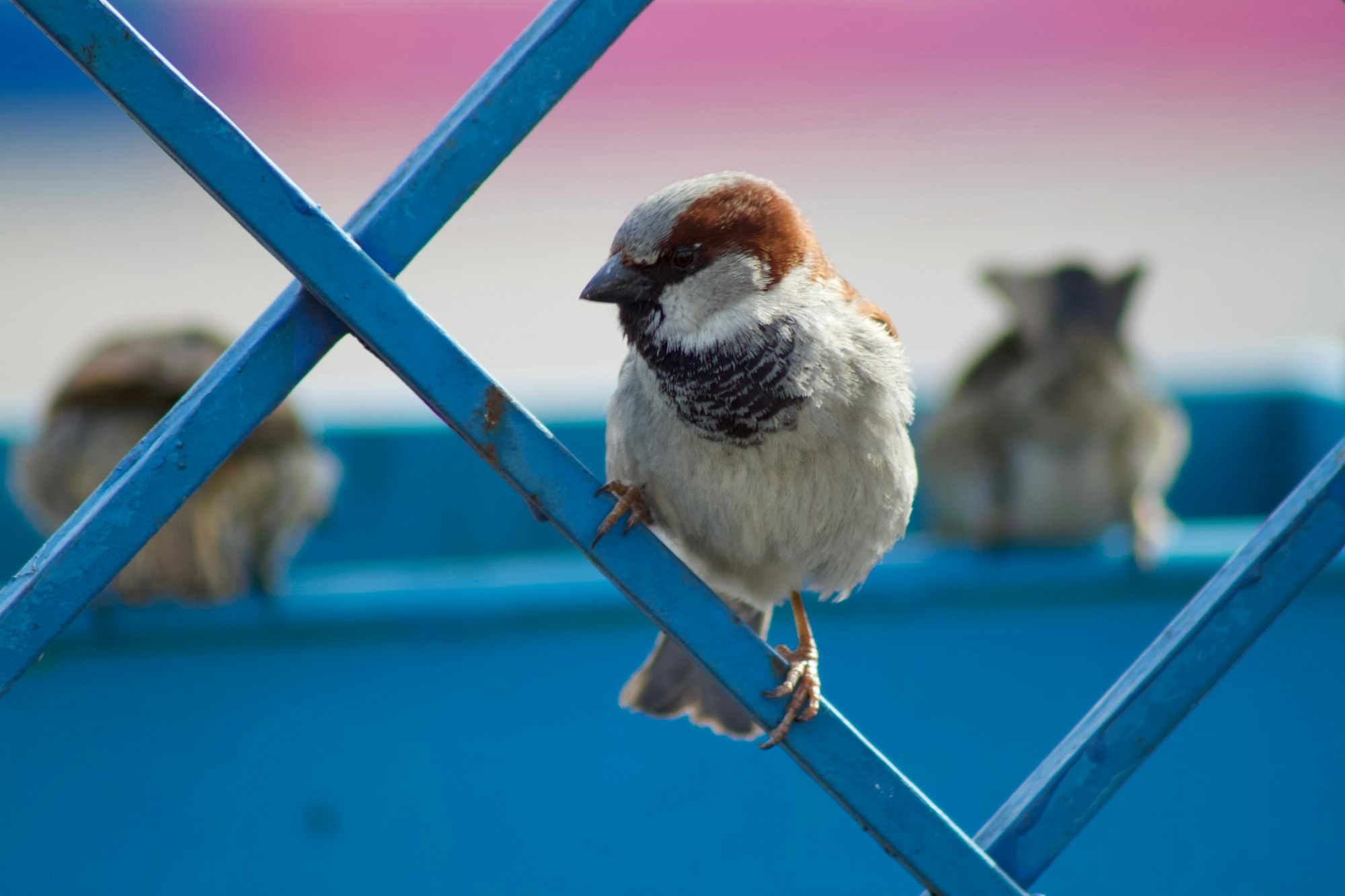Amy King, "Ivywall of Sparrows"
Joy has been difficult this week. Difficult to indulge, difficult to share.

Joy has been difficult this week. Difficult to indulge, difficult to share. The Texas Tribune featured this brutal but necessary report on food banks. A significant number of people depend on them, in large part because of the cost of housing, prices generally rising, and skimpy federal aid. The Tribune's report begins with a woman and her husband who are both employed but need the food bank because of the cost of rent. Reading the report is a grim exercise. Not much later, we are informed that "[i]n October, the average Texan receiving SNAP benefits got $174.45 — about $5.80 per day."
I shared the Tribune's article with my classes. I didn't share this John Oliver episode on dollar stores destroying, well, everything.
It's hard, in the face of needed voices being made less conspicuous, endless war, and comical levels of corruption, to find space to breathe. I'll go to work, I'll work hard, and I'll feel like I've done nothing. There is simply too much to preserve, repair, and fight for--forget, for a second, my own mistakes. I know you're overwhelmed, too.
I should say that I've been looking through what I've bookmarked from past years. I found "Ivywall of Sparrows" by Amy King. It stunned me, as it is an exercise in sheer joy. I'm lost in its sense of wonder. "Wonder" is a word I've grown cynical about recently. Reactionaries use it to say modern life is worthless, claiming that the world seeks practicality above all. I'd like to distance myself from those who want to burn it all down, and "Ivywall of Sparrows" gives me a wonder I can celebrate. You get your morning coffee, you go toward the subway, and then you see row after row of sparrows covering a wall as if they were painting a mural for the city:
Ivywall of Sparrows Amy King for Rob Davis I missed you at the coffee shop before sunrise, so I went along with a to-go in hand all the way to Clinton and Jerolemon, where the subway juts up from the earth’s eye socket, & from the corner of my own, I twisted toward the sparrows upon sparrows covering a 30-foot stucco wall cracked with song, without syllables, “Here Comes the Sun” in case I lost track of the time. Tell the people you pass and inhabit later on: Take your marketable skills and raise them to this wall; hold your brush up wet with rushes and slows and find your daytime position sings here.
I'm staring at the opening, "I missed you at the coffee shop / before sunrise." I'm thinking about the abandonment and neglect that's intentional or not. It has driven me crazy at times. What do I need to do to get any attention? But that's a peculiar sensitivity of mine. What's presented in the poem is a combination of a dark morning, hoping to run into someone, and running around with a cup of coffee. It's a gentler sort of disorientation. With more severe confusion, seeing anything different is tough. Here, "the earth's eye socket" and "the corner of my own" set up a sunrise unlike any other:
I twisted toward the sparrows
upon sparrows covering
a 30-foot stucco wall cracked
with song, without syllables,
“Here Comes the Sun” in case
I lost track of the time.
There are sparrows, everywhere. There's a darkness that's alive and massive and anything but horrifying. This is what you might have seen, if we had met at the coffee shop. A magnificent, natural illumination, a counterpoint that makes a sunrise that much brighter. The sparrows are noisy yet fail to irritate. They're the city before the city awakens.
"So what?" Well, the sparrows didn't miss each other for morning coffee, and on a larger level, you have to see life in order to recognize your own. I can't speak to the poem directly, but I've encountered a few people who outright refuse to be curious about how others do things or deal with problems. Sometimes those people even struggle to say "hi, how are you." I can't blame them for feeling a certain way, but I can say that only having one conception of how life works damages over the long run. You can't have success in a simple sense; you have to know how it works. Witness the world's richest man–nearly invincible because of his ties to the U.S. military–put himself in a position where he will face consequences.
There's a practical sense of wonder at play here. "Tell the people you pass / and inhabit later on" – whether we are speaking of chance encounters, friendship, or love, you need to see the sparrows. "Take your marketable skills / and raise them to this wall" – the sparrows are a city themselves. We barely understand what we're doing in life, but they're right in front of us, living life a whole other way. You can't really say they mirror us, but they might paint us if we're so lucky. A brush "wet with / rushes and slows," a brush we let sing us. We find our "daytime position" because of the sparrows, nothing more and nothing less.
